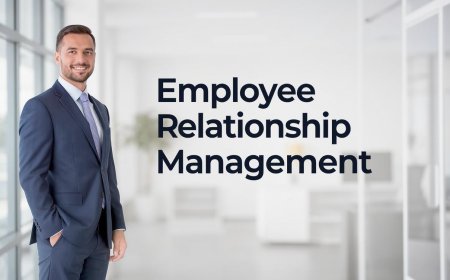Strategic Talent Growth: The Expanding Role of HR in Companies

The workplace has evolved drastically, and with it, the role of HR has expanded beyond administrative functions to become a strategic driver of talent development. In modern organizations, HR professionals shape growth strategies, build capabilities, and nurture employee potential at every level. The role of HR now directly influences business agility, innovation, and long-term competitiveness.
As organizations face constant disruption, HR teams are tasked with ensuring the workforce remains skilled, motivated, and prepared to meet new challenges.
Proactive Talent Acquisition for Growth
A crucial aspect of the Role of HR is identifying and recruiting individuals with high potential for future growth. Todays hiring strategies focus not just on experience but on adaptability, emotional intelligence, and willingness to learn. HR plays a strategic role by using assessment tools, behavioral interviews, and predictive analytics to recruit employees who align with the companys long-term vision.
This proactive recruitment approach ensures that employee development starts even before onboarding begins.
Seamless Onboarding and Early Engagement
Onboarding is where the development journey officially begins. The role of HR includes crafting personalized onboarding plans that introduce new hires to company values, development tools, and learning systems. HR ensures that new employees are engaged early, informed about career paths, and empowered to grow within the organization.
A strong onboarding process reduces attrition, enhances productivity, and sets the tone for a culture of continuous development.
Learning and Upskilling for the Future
The most visible expression of the role of HR in employee development is the planning and implementation of learning and development (L&D) programs. These initiatives are essential to reskill and upskill employees in line with technological advancements, industry trends, and internal growth needs.
HR is responsible for selecting learning platforms, creating competency frameworks, and offering personalized development paths. Whether through digital learning, mentorship programs, or in-house training, the role of HR is to foster a learning culture that drives performance and innovation.
Career Development and Internal Mobility
Career progression is a core component of workforce growth. The role of HR involves supporting employees in setting career goals, tracking their development, and finding the right opportunities for growth within the organization. Through development reviews, mentorships, and targeted skill-building programs, HR empowers individuals to take ownership of their career paths.
Internal mobility also helps retain talent and reduce recruitment costs. HRs role in facilitating lateral movements and promotions strengthens employee engagement and builds organizational resilience.
Performance Feedback and Development Planning
Continuous feedback is critical for growth. The role of HR includes designing and managing performance review systems that support learning, not just evaluation. Real-time feedback, coaching sessions, and self-assessments are becoming more common, all under HRs guidance.
HR also ensures that performance metrics align with development goals. Instead of simply grading employees, todays HR leaders help them understand how to grow into new roles and refine their skills.
Building a Development-Oriented Culture
A thriving development culture doesn't happen by accident. Its the result of intentional efforts by HR to foster environments where learning and growth are celebrated. The role of HR includes building recognition systems, knowledge-sharing platforms, and collaborative networks that support continuous development.
HR teams often launch initiatives like lunch & learn sessions, employee resource groups, and internal certifications to keep development front and center.
Succession Planning and Leadership Development
Identifying and preparing future leaders is a critical responsibility. The role of HR in succession planning involves evaluating current leadership capacity, spotting high-potential talent, and grooming them through strategic development plans. This includes rotational assignments, executive mentorships, and exposure to cross-functional projects.
Leadership development programs, driven by HR, ensure that the company never faces a leadership vacuum and that knowledge transfer is consistent and planned.
Leveraging Technology for Workforce Development
Technology has amplified the role of HR in employee development. HR platforms now track training progress, recommend learning content, and deliver personalized learning experiences. The role of HR includes selecting and managing these platforms, using analytics to drive development decisions, and measuring the impact of learning investments.
Digital tools allow HR to scale development programs, monitor engagement, and improve performance outcomes across the workforce.
Ensuring Inclusive Access to Development
The role of HR also includes making development opportunities equitable. Inclusive HR practices ensure that learning resources, mentorships, and advancement opportunities are accessible to employees from all backgrounds. By tracking participation and outcomes, HR teams can identify and close opportunity gaps.
An inclusive development approach creates a richer, more diverse workforce that reflects modern business needs and global perspectives.
Read Full Article: https://businessinfopro.com/the-role-of-hr-in-employee-development-and-workforce-growth/
About Us:
BusinessInfoPro is a dynamic B2B insights hub offering timely, expert?driven content tailored for professionals in finance, HR, IT, marketing, sales and more. Through in?depth articles, whitepapers and downloadable guides, we illuminate critical industry trends like AIs economic impact, data?driven decision?making and strategic marketing in uncertain economies. Our resources empower leaders to optimize efficiency, strengthen customer engagement and embrace sustainable innovation. With fresh publications covering cutting?edge topics sustainability, workforce transformation, real?time architecture and practical tools from top platforms and thought?leaders, Business?Info?Pro equips businesses to adapt, compete and thrive in a fast?changing global landscape.

































